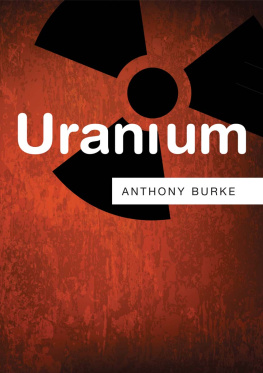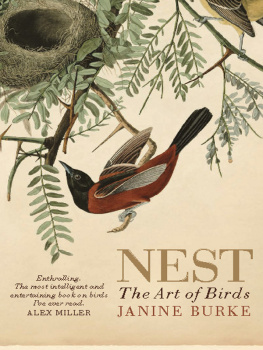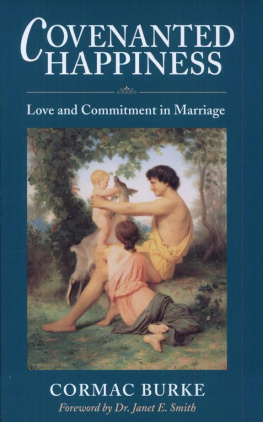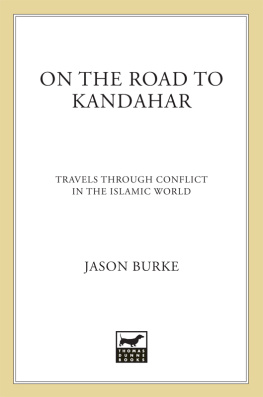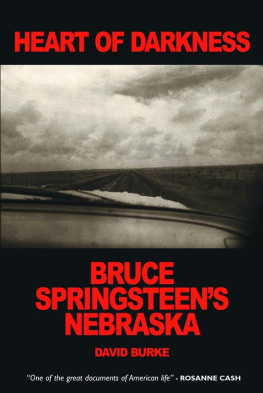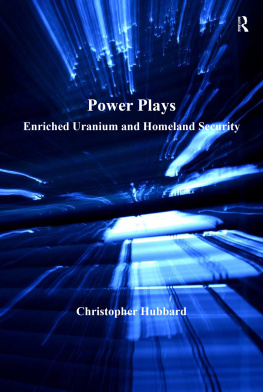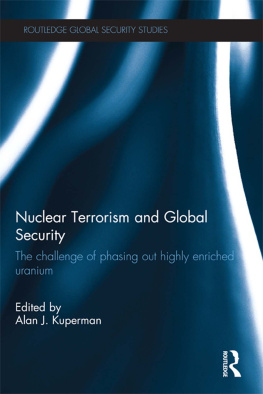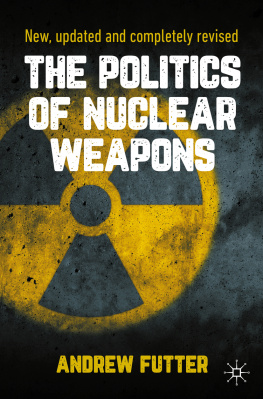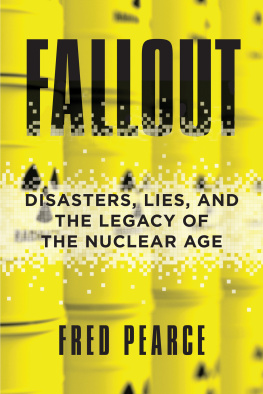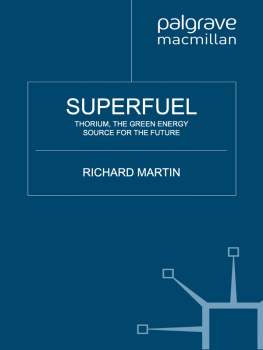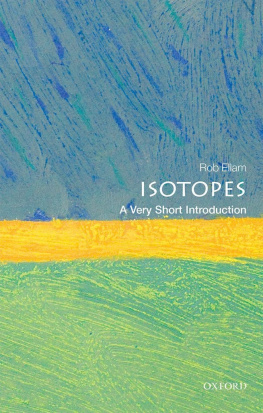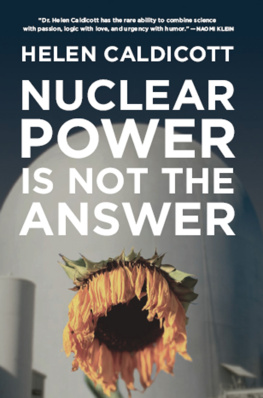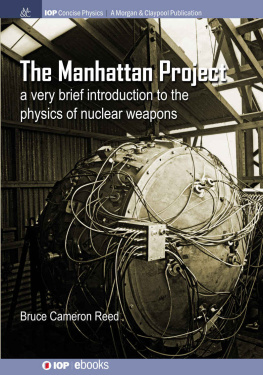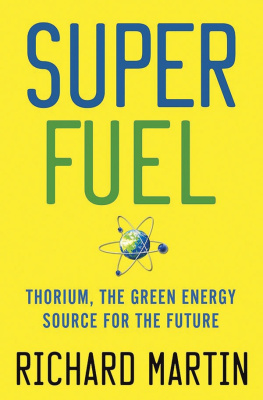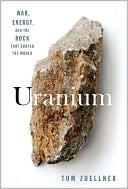Contents
Guide
Pages

Resources Series
Peter Dauvergne & Jane Lister, Timber
Michael Nest, Coltan
Elizabeth R. DeSombre & J. Samuel Barkin, Fish
Jennifer Clapp, Food, 2nd edition
David Lewis Feldman, Water
Gavin Fridell, Coffee
Gavin Bridge & Philippe Le Billon, Oil, 2nd edition
Derek Hall, Land
Ben Richardson, Sugar
Ian Smillie, Diamonds
Adam Sneyd, Cotton
Bill Winders, Grains
Uranium
ANTHONY BURKE
polity
Copyright Anthony Burke 2017
The right of Anthony Burke to be identified as Author of this Work has been asserted in accordance with the UK Copyright, Designs and Patents Act 1988.
First published in 2017 by Polity Press
Polity Press
65 Bridge Street
Cambridge CB2 1UR, UK
Polity Press
350 Main Street
Malden, MA 02148, USA
All rights reserved. Except for the quotation of short passages for the purpose of criticism and review, no part of this publication may be reproduced, stored in a retrieval system, or transmitted, in any form or by any means, electronic, mechanical, photocopying, recording or otherwise, without the prior permission of the publisher.
ISBN-13: 978-1-5095-1071-9
A catalogue record for this book is available from the British Library.
Library of Congress Cataloging-in-Publication Data
Names: Burke, Anthony, 1966- author.
Title: Uranium / Anthony Burke.
Description: Cambridge, UK ; Malden, MA, USA : Polity, 2017. | Series: Resources series | Includes bibliographical references and index.
Identifiers: LCCN 2016050165 (print) | LCCN 2016051034 (ebook) | ISBN 9780745670515 (hardback) | ISBN 9780745670522 (pbk.) | ISBN 9781509510702 (Mobi) | ISBN 9781509510719 (Epub)
Subjects: LCSH: Uranium.
Classification: LCC TA480.U7 B87 2017 (print) | LCC TA480.U7 (ebook) | DDC 333.8/54932--dc23
LC record available at https://lccn.loc.gov/2016050165
The publisher has used its best endeavors to ensure that the URLs for external websites referred to in this book are correct and active at the time of going to press. However, the publisher has no responsibility for the websites and can make no guarantee that a site will remain live or that the content is or will remain appropriate.
Every effort has been made to trace all copyright holders, but if any have been inadvertently overlooked the publisher will be pleased to include any necessary credits in any subsequent reprint or edition.
For further information on Polity, visit our website: politybooks.com.
Acknowledgements
Part of the research and writing of this book was funded by the joint UNSWUniversity of Birmingham project Nuclear ethics and global security, which is supported under the RCUK Global Uncertainties Programme an initiative of the Economic and Social Research Council (ESRC), the Arts and Humanities Research Council (AHRC) and the Engineering and Physical Sciences Research Council (EPSRC) of the United Kingdom. I thank Catherine Edwards, Nick Wheeler and Tina Aston for their support of this project, especially for travelling to the 2015 NPT Review Conference in New York City. Politys Louise Knight and Nekane Tanaka Galdos exhibited great patience as the delivery of this manuscript was delayed, and I am grateful for their professionalism and advice as the book was being developed. I also thank Stefanie Fishel, who read much of the final manuscript, and its reviewers, who also provided valuable advice.
Abbreviations
ABMAnti-ballistic MissileAECUS Atomic Energy CommissionBMDBallistic Missile DefenceCDUTCanada Deline Uranium TableCGNChina General Nuclear Corp.CNSConvention on Nuclear SafetyCTBTComprehensive Test Ban TreatyDGSEDirection Gnrale de la Scurit Extrieure (France)DUDepleted UraniumEDFElectricit de France (energy corp.)EISEnvironmental Impact AssessmentEPAEnvironmental Protection AgencyERAEnergy Resources AustraliaFMCTFissile Materials Cut-off TreatyGWeGigawatt (electrical energy)HEUHighly Enriched UraniumHLWHigh Level WasteHRIHydro Resources Inc.IAEAInternational Atomic Energy AgencyICBMIntercontinental Ballistic MissileICNNDInternational Commission on Nuclear Non-Proliferation and DisarmamentILWIntermediate Level WasteIRBMIntermediate-range Ballistic MissileINESInternational Nuclear and Radiological Event ScaleISLIn-situ LeachingLEULow-enriched UraniumMIRVMultiple Independently Targeted Re-entry VehicleMRBMMedium-range Ballistic MissileNRCNuclear Regulatory CommissionPERPublic Environment ReportPHSPublic Health Service (US)METIMinistry of Economy, Trade and Industry (Japan)MWeMegawatt (electrical energy)NATONorth Atlantic Treaty OrganizationNGONon-government OrganizationNISANuclear and Industrial Safety Agency (Japan)NKVDThe Peoples Commissariat for Internal Affairs (USSR)NPTTreaty on the Nonproliferation of Nuclear WeaponsNNWSNonnuclear Weapons States (members of the NPT)NSGNuclear Suppliers GroupNWSNuclear Weapons States (members of the NPT)OEWGOpen-Ended Working Group On Taking Forward Multilateral Nuclear Disarmament NegotiationsSACUS Strategic Air CommandSDIStrategic Defense InitiativeSIOPSingle Integrated Operations Plan (US nuclear war plan)SLBMSubmarine Launched Ballistic MissileSTARTStrategic Arms Reduction TreatyTEPCOTokyo Electric Power CompanyTNT2,4,6-trinitrotolueneTNWTheatre Nuclear WeaponUNUnited NationsUSSRUnion of Soviet Socialist Republics (Soviet Union)UNCUnited Nuclear CorporationVCAVanadium Corporation of AmericaWNAWorld Nuclear Association
CHAPTER ONE
The Politics of Uranium
The names Hiroshima and Fukushima have a sinister rhyme. When considered together, they are stark historical bookends to Japans tragic experience of nuclear energy since 1945: at Hiroshima, one of only two explosions of a nuclear weapon in warfare and, at the Fukushima Daiichi power plant, the second worst nuclear accident in modern history. Two generations of Japanese, separated by half a century, had experienced the most feared outcomes of the military and industrial exploitation of a dull grey ore: uranium. This substance whose atomic qualities enabled scientists to unlock the reactions that power the stars has changed, secured and threatened the world and continues to reverberate through its geopolitics.
As the heaviest (and most atomically unstable) naturally occurring chemical element on earth, uranium has won a unique place in the global politics of resources. Highly enriched shells of this metal sit inside the nose cones of tens of thousands of nuclear weapons, promising enormous destruction and mortality should they ever be used. Formed into rods, it sits inside more than 430 electric power stations around the world, partially fulfilling a promise to unlock plentiful sources of energy for peaceful use by humankind, while opening up new dilemmas of nuclear safety, proliferation, terrorism and disposal. In other applications, the fission of uranium is used to create a range of radioactive substances used in medical imaging and treatment, while one of its fission products plutonium is used both in nuclear weapons and to power interplanetary spacecraft. In short, uranium is powerful and ironic. Put into the hands of doctors, scientists, technicians, soldiers and strategists, uranium saves lives and provides security, at the same time as it imperils human life and security on a planetary scale.
Uranium is controversial even before it is put to use in energy, military and medical applications. Protest movements, court cases, national inquiries and international treaties have been fuelled by the environmental impact of its mining, the safety and health challenges for mine workers, the costs to indigenous communities and the security implications of its sale and export. These costs, wrongs and conflict triggers are absent from the nuclear non-proliferation regime the structure of global governance designed to control nuclear dangers yet are no less central to the politics of this extraordinary mineral. From the time uranium was first identified as a crucial military resource, its strategic importance has driven national efforts to find it, exploit it and control it especially to control its use, production and trade.

